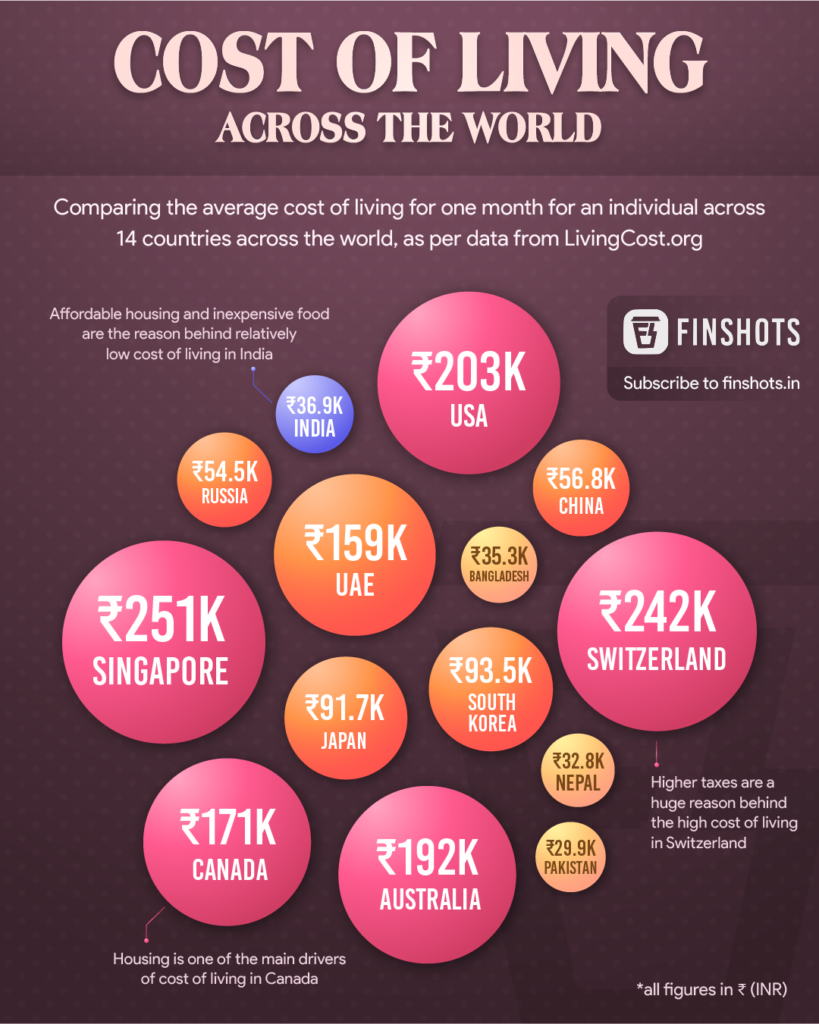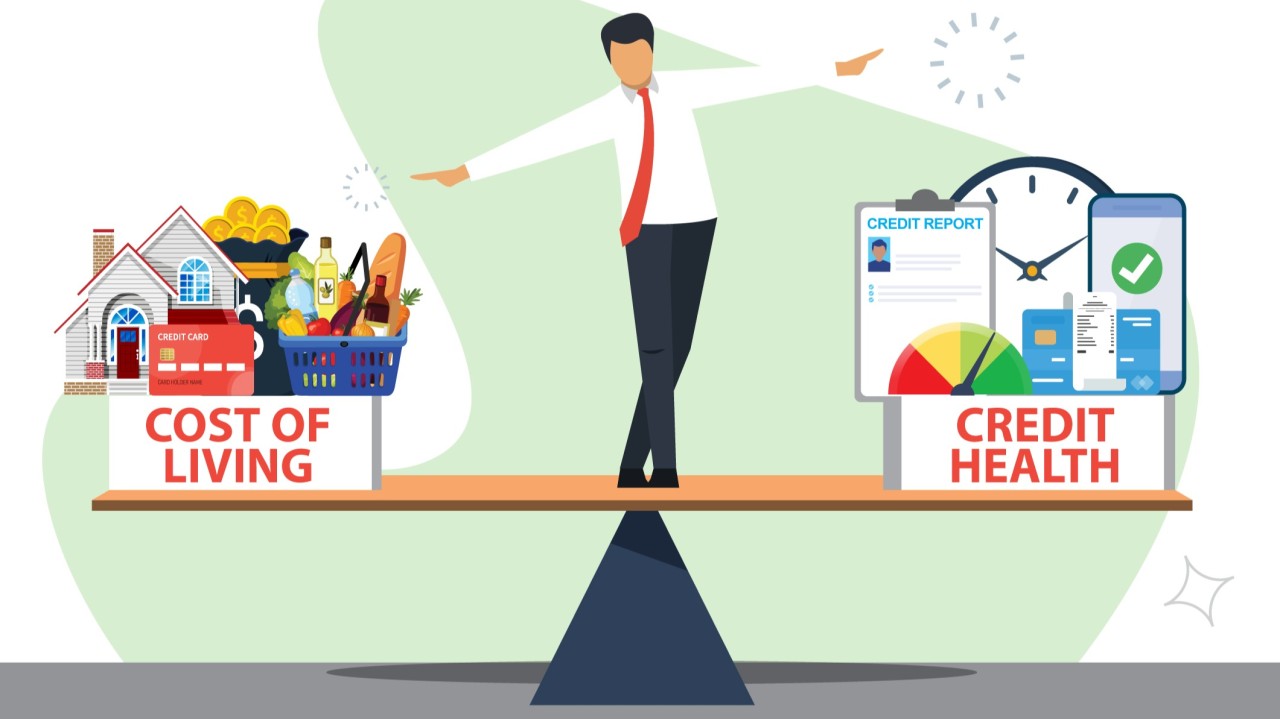The rising cost of living is reshaping daily life in the Gulf region, with recent reports revealing that 35% of residents have altered their lifestyle choices due to growing financial pressure. Families are tightening budgets, shifting priorities, and seeking new ways to maintain their standard of living.
Across countries like Saudi Arabia, the UAE, Qatar, and Kuwait, the price of food, rent, transportation, and basic services has steadily increased. While the Gulf has long been seen as a hub of luxury and wealth, the changing economic landscape is forcing both locals and expatriates to reevaluate their spending habits.
How the Rising Cost of Living Is Changing Life in the Gulf
The rising cost of living is now a major concern among Gulf residents. Inflation, global economic shifts, and post-pandemic recovery have caused prices to rise sharply. According to a recent consumer survey conducted across the region, over one-third of respondents around 35% reported that they had made lifestyle changes in response to cost increases.
These changes include:
- Reducing dining out and entertainment
- Shifting children from private to public schools
- Downsizing homes or moving to more affordable areas
- Cutting back on luxury shopping and travel
In many Gulf cities, daily expenses are now a bigger burden, especially for middle-income families. What was once considered a comfortable lifestyle is becoming harder to maintain.

Key Areas Affected by the Cost Increase
- Housing
Rental prices have surged, especially in cities like Dubai and Riyadh. In some areas, rents have increased by over 20% in just the past year. As a result, families are choosing smaller homes or moving to suburban areas to save money. - Groceries and Essentials
Food prices, especially for imported goods, have gone up significantly. Many families now prefer local brands or reduce consumption of imported items to cut costs. The price of cooking oil, dairy, fruits, and meat has seen a noticeable rise. - Transportation
With rising fuel prices and increased car maintenance costs, residents are either switching to public transportation or carpooling. Some are even considering electric vehicles for long-term savings. - Education
Private schooling is a major expense for many families. Due to the rising cost of living, parents are transferring children to more affordable educational institutions. Extra classes and foreign curriculums are being cut from household budgets. - Healthcare
Healthcare premiums have increased across many Gulf countries. As a result, some residents are opting for basic health plans instead of premium packages, which can affect the quality of care.
Impact on Expatriates and Middle-Income Groups
The rising cost of living has impacted expatriates the most. Many are paid in local currency, which hasn’t increased in line with inflation. In cities like Doha and Abu Dhabi, the cost of rent and schooling can take up more than half of an average expat salary.
Middle-income residents who once enjoyed leisure trips, frequent dining out, and other lifestyle perks are now looking for budget-friendly options. Some families are even sending a spouse back to their home country while the main earner stays in the Gulf to cut living costs.
A Cultural Shift: From Luxury to Practicality
Gulf nations have long been associated with luxury high-end malls, fine dining, and brand-name goods. However, the rising cost of living is driving a cultural shift. More people are shopping in discount stores, choosing staycations over international travel, and seeking second-hand goods online.
Many youth and millennial are becoming more financially conscious. Social media influences are promoting budgeting, minimalism, and financial planning. Lifestyle choices are being influenced not just by trends, but by necessity.

Government Responses and Support Measures
Governments in the Gulf are aware of the challenges. Some countries have introduced price control measures on essential items. The UAE has announced plans to monitor retail inflation more closely. Saudi Arabia is expanding its citizen support programs like “Citizen’s Account” to help low-income families.
Other initiatives include:
- Subsidizing basic food items
- Supporting small businesses to keep costs low
- Encouraging public transportation use with discounted fares
However, despite these efforts, the impact of the rising cost of living continues to be felt.
Is There Relief on the Horizon?
While global inflation is expected to stabilize, experts believe that Gulf countries may still face economic pressures for another 12–18 months. Recovery in the oil sector and investments in local production could bring down import prices eventually, but for now, families are advised to adapt and plan better.
Financial advisors in the region are encouraging people to:
- Track monthly expenses carefully
- Avoid unnecessary loans and credit card spending
- Build emergency savings
- Invest in skill development for better income opportunities
Conclusion: Adapting to the New Normal
The rising cost of living across the Gulf has caused a 35% shift in lifestyle decisions, changing how people live, spend, and plan for the future. While the region remains strong in economic potential, individual households are now more focused on smart budgeting and long-term stability.
Whether through downsizing, changing habits, or seeking government support, Gulf residents are learning to adapt. This shift, though challenging, may ultimately lead to a more financially conscious and sustainable lifestyle culture across the region.
Do follow Gulf Magazine on Instagram
Also Read – Bold Gulf Lifestyle Shifts See 60% Rise in Remote Work Living



